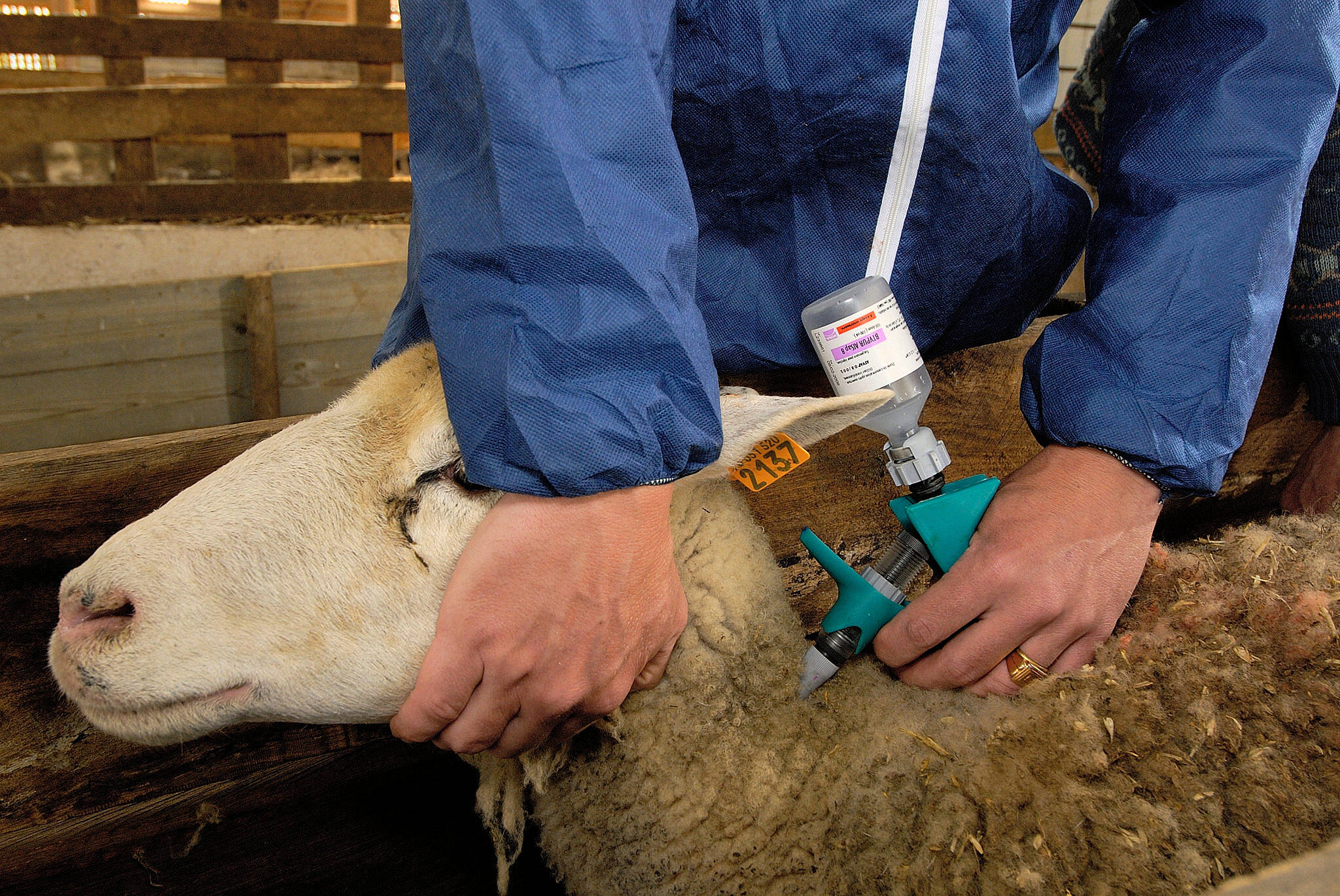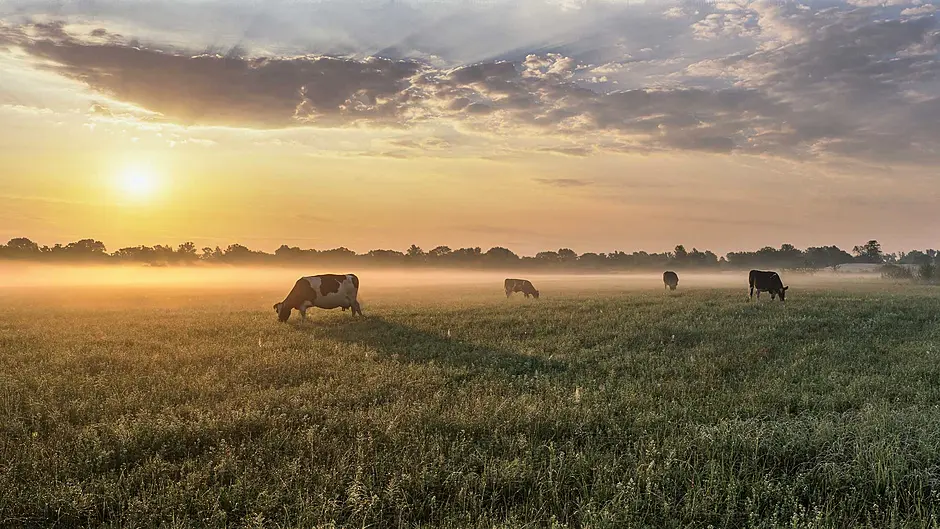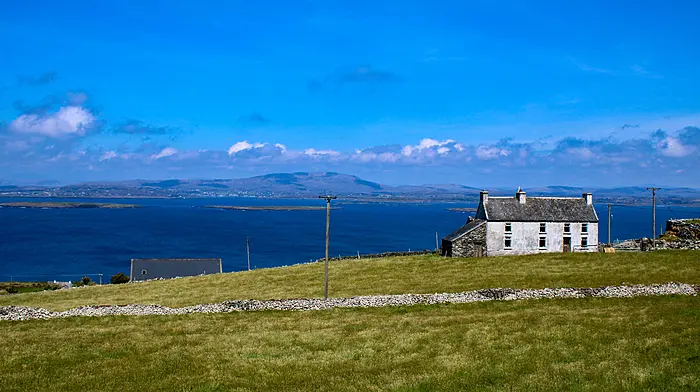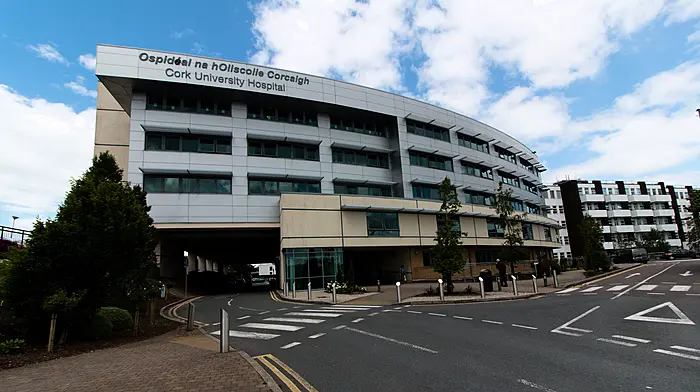As a new year begins, Tommy Moyles presents an outlook of the hopes and needs of Irish farming in the year ahead.
WEATHER, markets, and policy. They are the triumvirate that influence the fortunes of anyone involved in farming, and each in turn impacts on the other.
For 2025, farmers will be hoping for a more settled year in terms of weather patterns compared to the 12 months just past.
In 2024 we experienced a wet spring, followed by a colder than usual summer, increasing workloads and costs on farms.
It wasn’t until August that some semblance of normality returned and soil temperatures and grass growth picked up and a mild settled backend to the year proved to be a pressure release valve.
The markets are at the mercy of weather, policy, and in more recent years geopolitical issues.
Most notable of these was the input cost spikes due to the Russian invasion of Ukraine.
Teagasc are forecasting the annual average Irish milk price for 2025 will be up about 5% compared to 2024 level and expect production to increase by 4%.
That will be welcome news following a difficult spell where milk supply fell by 4% nationally in 2023 and was down 9% heading into June 2024.
Fortunately, weather improved and demand for butter drove milk prices on, resulting in most processors getting within 2% to 3% of their 2023 supply levels.
Demand for protein was strong in Europe and on its peripheries too and that helped drive prices for both bovine sectors.
It means the mood among most farmers is relatively good starting the year off.
They’re coming off the back of good weather, improving dairy prices and beef prices hit highs not seen before.
Traditionally, prices slump as the autumn progresses as cattle numbers from grass increase but in 2024 that never occurred.
Factories were very eager for stock and paid well for it.
A factor in that was that live exports of stock were the highest they’ve been in a long time and the number of births in both dairy and suckler herds has decreased.
Those combined means in terms of numbers, the market looks like it will be in the farmers’ favour in the short term.
Keeping Bluetongue out of the country will be key to maintaining those markets.
The insect-borne viral disease does not affect humans but all species of ruminants are susceptible.
It is present in the UK and on the continent and in part has helped create demand for Irish stock.
If it emerges here, it will be a spanner in the works in terms of live exports.
In 2024, 60 countries went to the polls and the fallout from all that voting will be seen from now on.
Elections are due in Germany in a few weeks, France isn’t overly stable and the UK still appears unsettled since Brexit.
In Brussels, a new commission has got its feet under the table in Brussels and the foundation work is underway on the next Common Agricultural Policy (CAP).
Decisions made west of us could have implications on that.
The unpredictability of a Trump presidency means anything could happen.
It will be important to pay attention to what they do rather than what he says.
Much like former UK prime minister Boris Johnson, Trump has an ability to say something wild to distract from other issues.
There is plenty of talk about a trade war and tariffs but it should be remembered those implemented by him on EU dairy products last time out remained in place for Biden’s tenure.
Threats regarding, Ukraine, security and NATO funding is a bigger concern to Europe due and that could impact the direction of the next CAP.
On the home front, once government formation talks are complete, there will be a new team in Kildare Street.
Having drawn their ire for the last five years, farmers will need to find a new bogeyman as the Green Party will not be in Government.
It means the incoming government will need a new mudguard too as the easy option of blaming difficult policy on the Greens is now gone.
After putting an extra focus on agriculture since Simon Harris took over as leader, don’t be surprised to see a Fine Gael hand at the helm.
If that is the case, perhaps we could see a TD from Cork South West or Cork North West in the form of Fianna’s Fáil’s Christopher O’Sullivan, Aindrias Moynihan, or Michael Moynihan joining the ministry in the junior ranks?
Farmers in West Cork could be hoping for that or for one of them to hold a ministry in the Department of Housing, Local Government and Heritage.
That is the lead government department in relation to the Nitrates Regulations and while the spectre of the nitrates derogation didn’t have as dramatic an impact in farms last year compared to 2023, uncertainty still remains.
By the end of 2025, hopefully another derogation will be secured for a four-year period, and as IFA environment committee chairman, John Murphy said at a dairy meeting in Clonakilty in late November, that’s as much certainty that we can expect from it.
To surmise Mr Murphy, managing water quality is going to be a constant for farmers and that will be a major determinant in the future of the nitrates derogation.
As long as there’s constant improvements in water quality, there’s a good chance of it remaining in future.
If improvements continue, I don’t see the derogation disappearing but I wouldn’t be making long-term plans based on a stocking rate of over 220kg N/ha, either.
Our maritime climate is an asset and I think there will be a concerted effort to bring more politicians and officials to Ireland from the European Commission to make a case for retaining it.
I’ve heard the question ‘where is the maize?’ was asked by many on a previous visit.
Much of continental European milk production is based on this and our largely grass based model is rare, so expect more visits to show how the Irish system works.
 Bluetongue vaccination taking place in France. The disease has re-emerged strongly on the continent. (Photo: Shutterstock)
Bluetongue vaccination taking place in France. The disease has re-emerged strongly on the continent. (Photo: Shutterstock)







